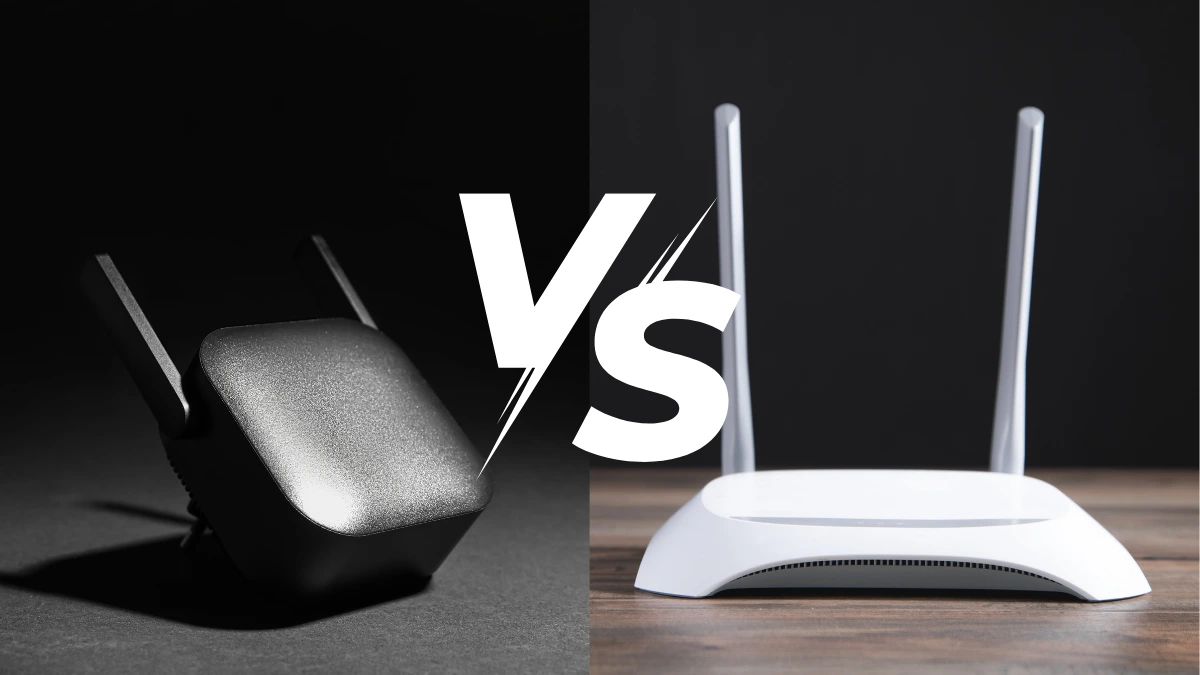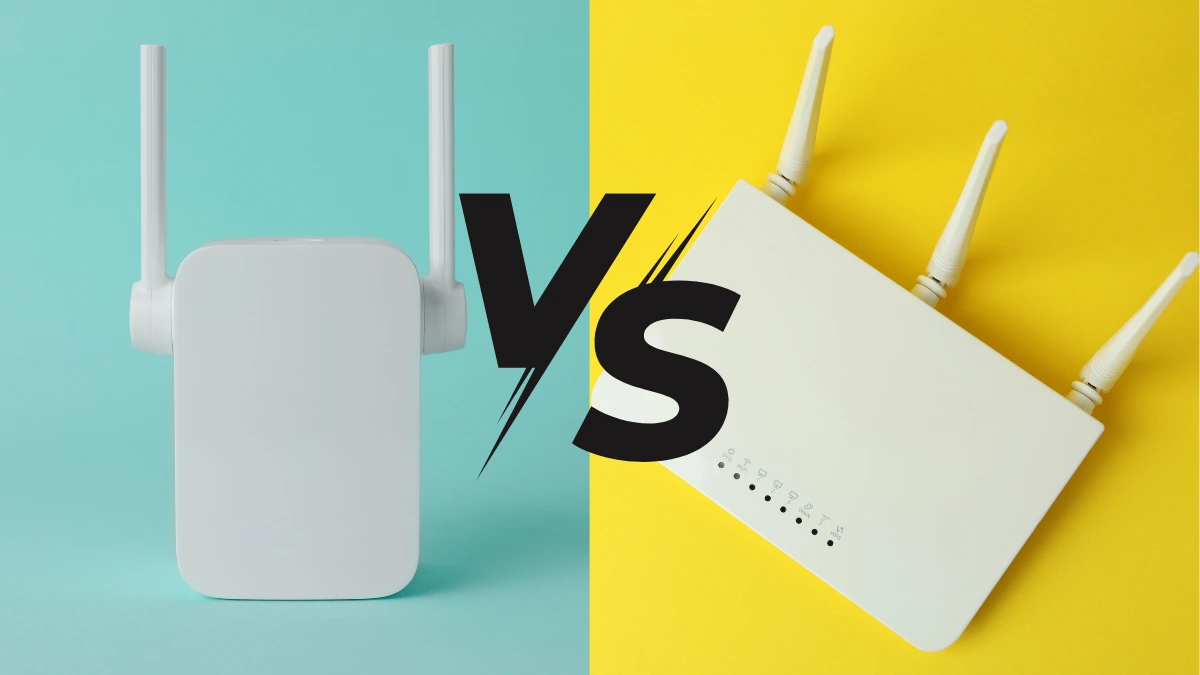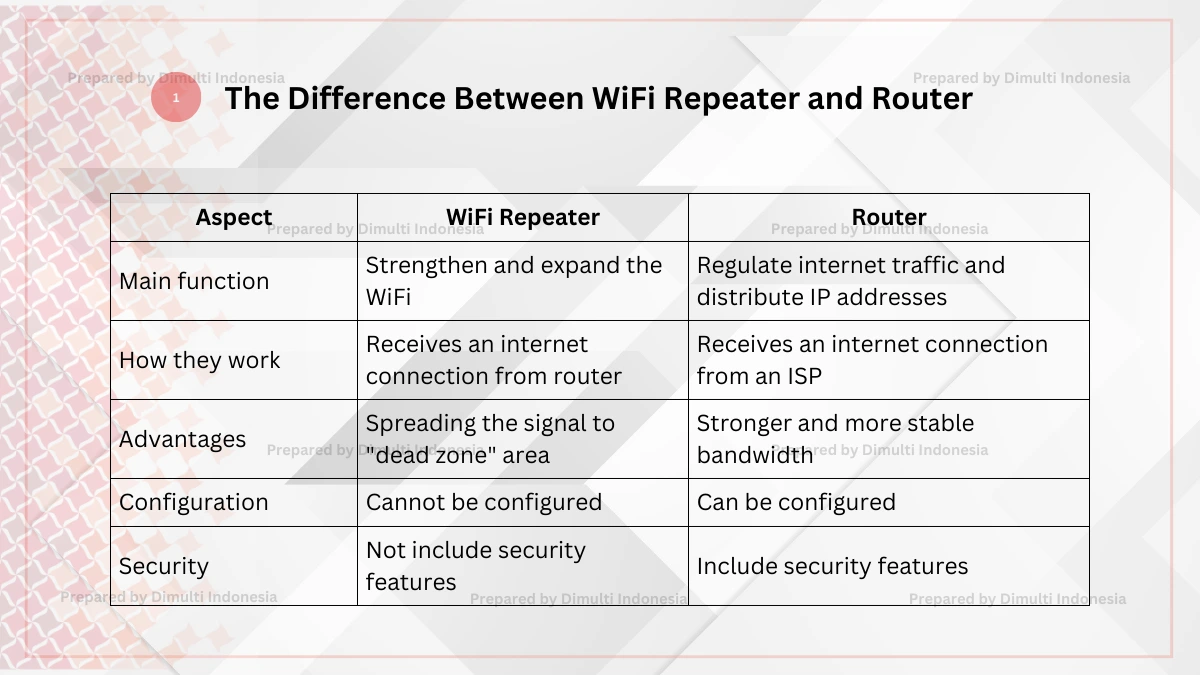A WiFi repeater and a router are the keys to help give an internet connection. Although both maximize digital connectivity, WiFi repeater and router have some significant differences.
The differences between WiFi repeater and router include several aspects, such as main function, how they work, advantages, configuration, and security.
This article will delve into the important differences between WiFi repeater and router to give an internet connection.
What is a WiFi Repeater?

As the name suggests, a WiFi repeater is an electronic device used to extend the range of a WiFi signal. In other words, a repeater acts as an amplifier and rebroadcaster of WiFi signals, enabling them to reach areas that were previously difficult to reach with the main signal.
A WiFi repeater amplifies and rebroadcasts WiFi signals by receiving signals from the main router and rebroadcasting them to a wider area with greater strength.
What is a Router

Routers are devices that were first developed in the 1970s. The growing need for communication between computers made this device initially used in military and university systems.
Routers work in managing the data traffic of various devices such as smartphones, laptops, tablets, and so on over the internet. The router functions as a bridge that channels the internet to various devices.
Routers function to receive, analyze, and forward data packets between networks. Multiple devices can be connected to the same internet connection by using a router.
With its capabilities, routers today are like items that must be used at home or in the office to maximize digital connectivity.
The Difference Between WiFi Repeater and Router

A WiFi repeater and extender are both used to help give an internet connection, but they have some differences. Here are five differences between WiFi repeater and router:
1. Main function
WiFi repeater: Serves to strengthen and expand the WiFi signal network from the router.
Router: Serves to regulate internet traffic and distribute IP addresses to each connected device.
2. How they work
WiFi repeater: Receives WiFi signals from the router wirelessly and rebroadcasts them.
Router: Receives an internet connection from an internet service provider (ISP) and distributes it to connected devices.
3. Advantages
WiFi repeater: Acts as an extension of the router in spreading the signal to areas that were previously not covered by the main signal.
Router: Has stronger and more stable bandwidth, unlike WiFi repeaters.
4. Configuration
WiFi repeater: Cannot be configured to manage data traffic or distribute IP addresses.
Router: Can be configured to manage the network, including password management.
5. Security
WiFi repeater: Does not include security features.
Router: Includes security features such as a firewall, encryption, and access management.
That’s the difference between WiFi repeater and router that you can consider when choosing according to your personal needs.
If you need to expand the internet signal in a “dead zone”, a WiFi repeater is a good choice. However, if you need a first internet connection at home or the office, you can choose a router. [UN]